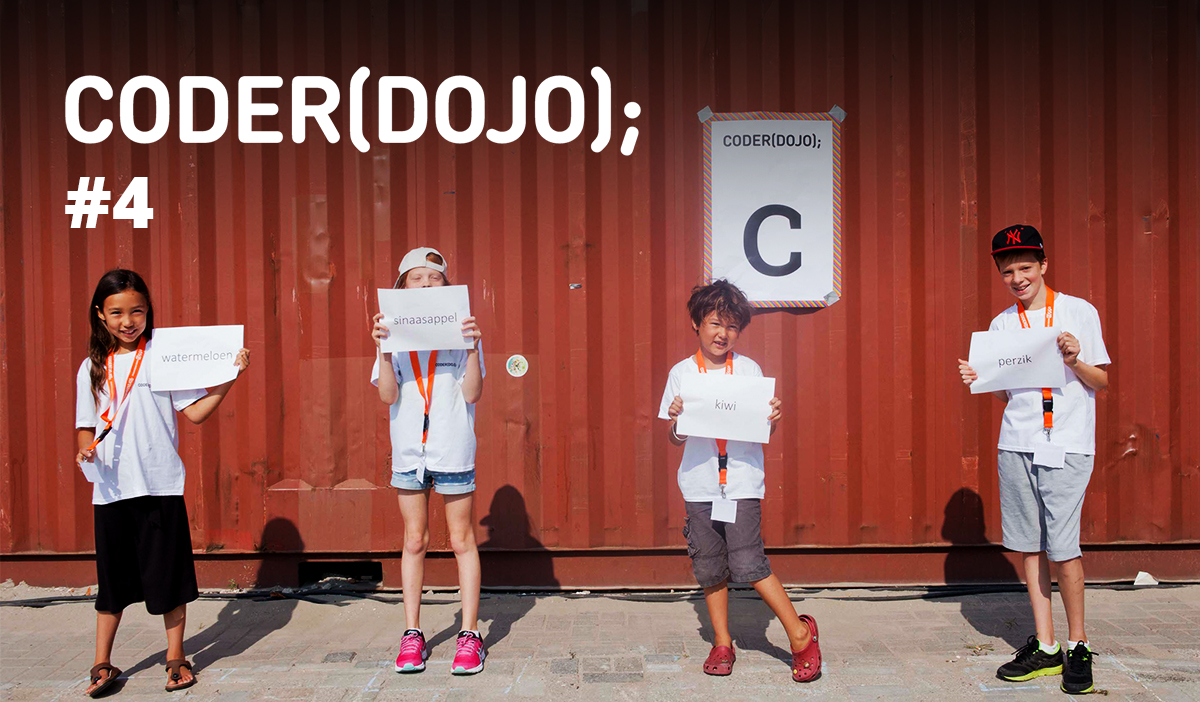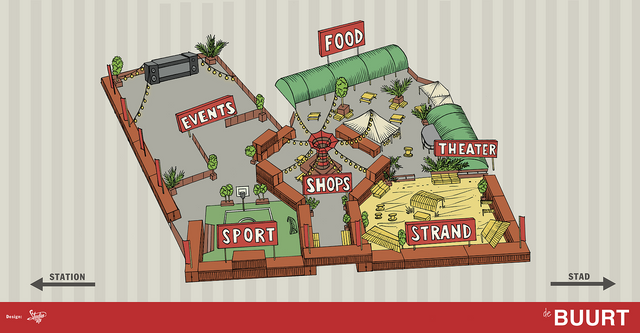CoderDojo Life #4 - Teaching Children To Code Without Code! CoderDojo Unplugged 🤓
"How is this even possible?", you might ask. Well, it's all about computational thinking. By playing games which have a deeper meaning behind them you can stimulate the problem solving skills and show children how they can think like computers and software. The cool thing is that this can be done entirely without computers or even code! As we call it; CoderDojo Unplugged!
👉 New series started! 👈
👉 #3 Last Year We Taught 1024 Children To Program At The Same Time!
👉 #2 Worldwide Free Coding Clubs For Kids | CoderDojo Above All, Be Cool!
👉 #1 Teach Your Children To Code! Are They Prepared For The Black Box...
Hot Summer Day In 2016 At A Local Hotspot
So, teaching to code without actual computers, how does that work? Well, we put together an afternoon with 6 games that could be played outside and would stimulate computational thinking and help prepare children for coding. We chose 😅 to do this on what turned out to be the hottest ☀️ summer day of 2016 😎!
During this summer there was a temporary hotspot for your cultural, food, music, theater and relaxation fix in Leiden. It had several different areas and it was available to all sorts of local organizations and initiatives to hold events. Every week they would have different things going on varying from DJ's to the local basketball club giving a workshop. In this case, we came together with 96 kids to play games on the events area!
Six Different Games
With the help of sources like csunplugged.org we put together 6 games which the kids could play in groups. The kids were divided in groups of 4. To give you the simple math:
- 4 children per group
- 2 groups per game version (= 8 children)
- 2 versions of each game (= 16 children)
- 6 games (= 96 children)
The games we prepared were:
- Living Programming (Dutch) | Learn to think in steps
- Algorithms | Learn To Compose Steps
- Sorting Machine | Learn How Data Is Sorted Programmatically
- Minimal Spanning Tree | Learn How Networks Choose The Shortest Path
- Routing & Deadlock | Learn How Data Is Shipped In Packets
- Binary Numbers | Learn How The Binary System Works
We would then run each game for about 50 minutes of which 10 minutes would be to explain the game and set it up, 30 minutes to play the game and another 10 minutes to move to the next game. A big airhorn would mark the switch time. To make sure the groups would be mixed up we had the even group numbers rotate clock-wise and the odd group numbers rotate counter-clockwise. That ensured everybody would continuously meet other people and you would only be together with the same 8 people at most.
👉 Check out all those happy faces! 👈
But before you go, please take a moment to think about these questions 🙃:
❓ Are your children being taught to program?
❓ Do you think this is an important skill to learn at young age?
✏️ Let me know in the comments!
by their photographers so we can use them in publications like this.
Feel free to follow me and stay up to date on more activities by CoderDojo
to get children into programming and technology.
feel free to give my #introduceyourself a read :).



WoW what a great way to teach the kids and Yes I think its absolutely important that they learn this because it’s the future but I would also like to see an easy playful way to teach people that become older and who start having difficulty with learning .
Thanks for that delightful feedback! Personally I can not say too much about the elderly, but I do agree they should definitely not be forgotten! A major difference though is that they mostly need it to simply "keep up" with today's technology, whereas young people will actually need to live with it for the rest of their lives, and hopefully learn how to keep up themselves. However, I will keep this in mind, maybe I can write up some good resources for low-level learning for our senior generation :)
Thank you for your response very much appreciated and I was thinking about the age of 45-50 that has forgotten how to study because they stayed to long in one job and now have to start over
And thank you for the useful links I will check them to out to see if I can use as a parent to teach my kids or to introduce it to there school
Anytime! If you are looking for any other resources feel free to let me know! I'm happy to think alongside and help you find what you might need :)
Oh thank you and yes I can use many resources especially low level for starters so I can start getting my kids involved ages 9 and 16 and i have to understand it as wel to bring the knowledge over to my kids
Well, first I would suggest to check out my introduction post on CoderDojo to give you an idea of these free clubs. If that might be something you are interested in you can search for one in your area on coderdojo.com. If you can't find any there are many more initiatives likes CodeClub, RailsGirls, etc.
If that doesn't seem like something you need or you can't find something nearby, I would suggest to get started with Scratch. This is a very low level program which children can use to easily put together games and animations. Instead of needing to write code, they can simply put code together like a puzzle.
You can find many resources on this in the open source library of CoderDojo: Kata
Good Luck!
Thank you very much for the great tips I go check it all out this weekend
I wish someone had thought me how to program in school. I only had my first computer when I was like 16 or 17 or so...
kids these days.. ;)
Same here, it's the exact reason I got into CoderDojo, so I can provide kids what I didn't have when I was that age. Although, you are never to old to learn!
Nope, not too old. But it is a lot easier when you start early.
That is very much true!
A good post. @seersalomon followedd
Thank @fantasticmonkey! I hope you will enjoy my future posts as well :)
Dat lijkt mij een geweldig initiatief.